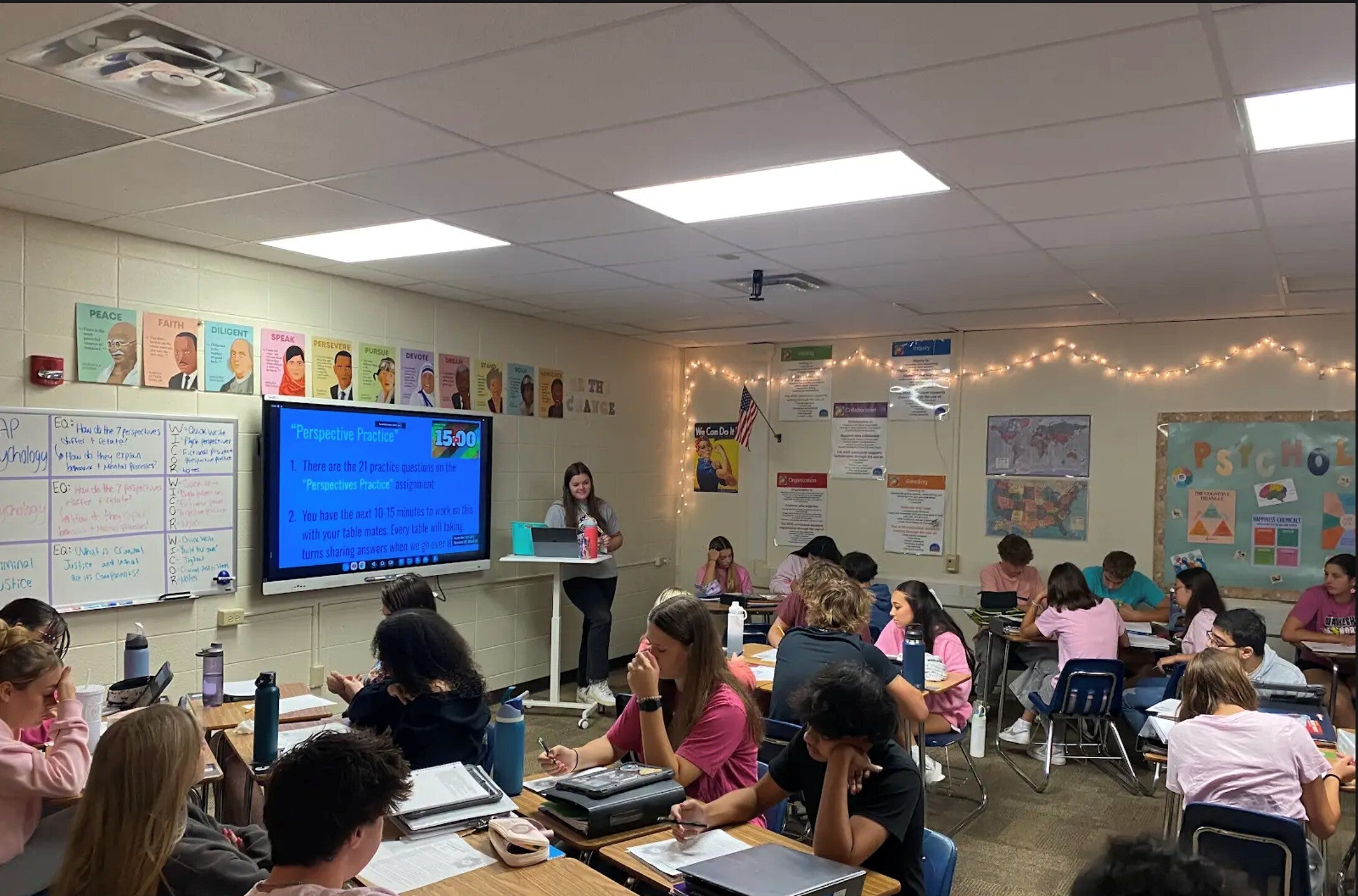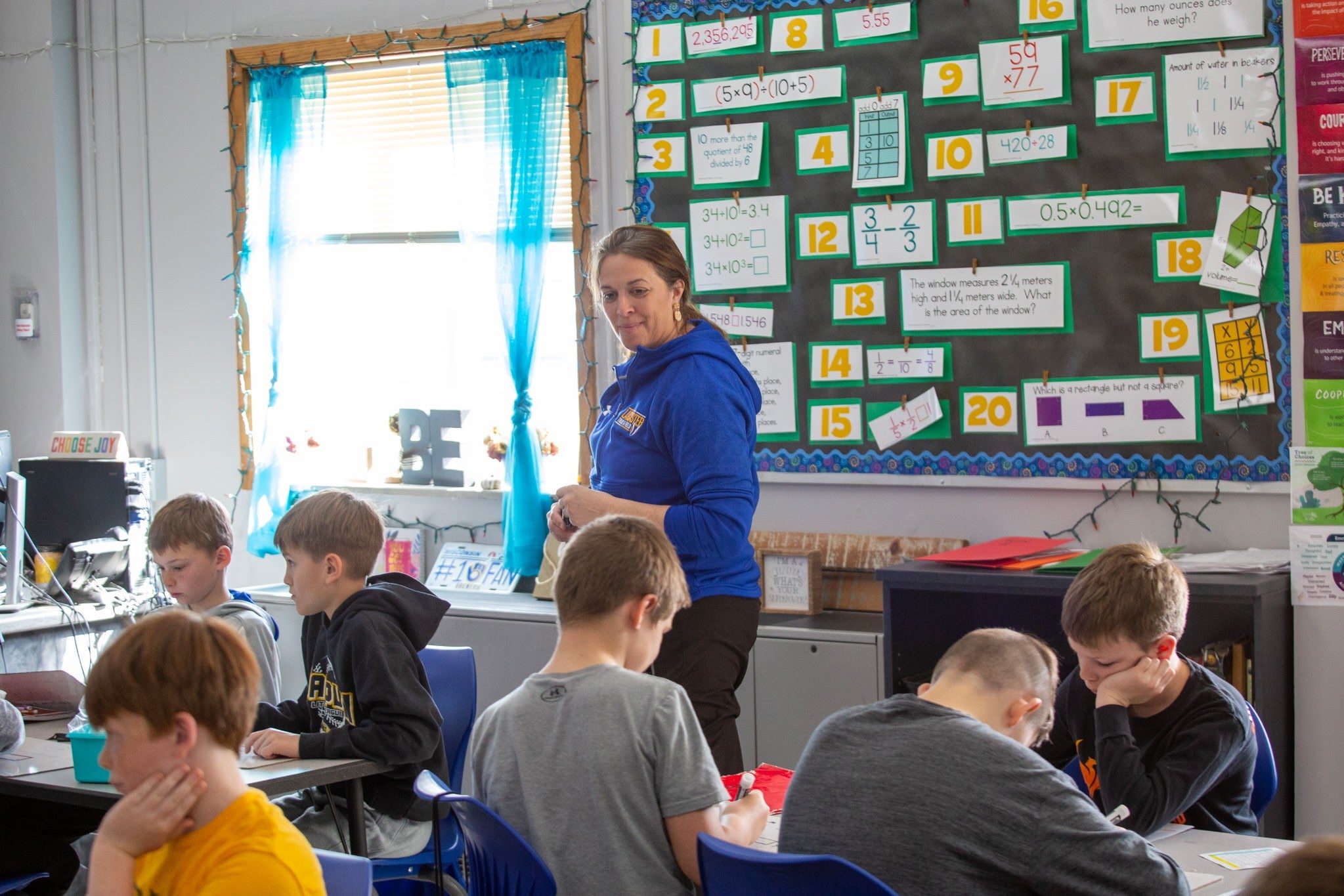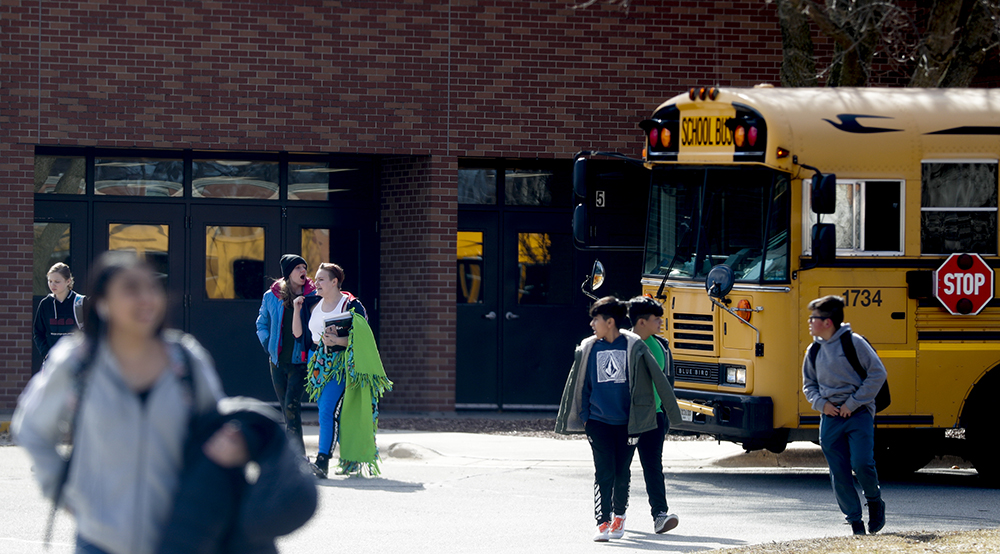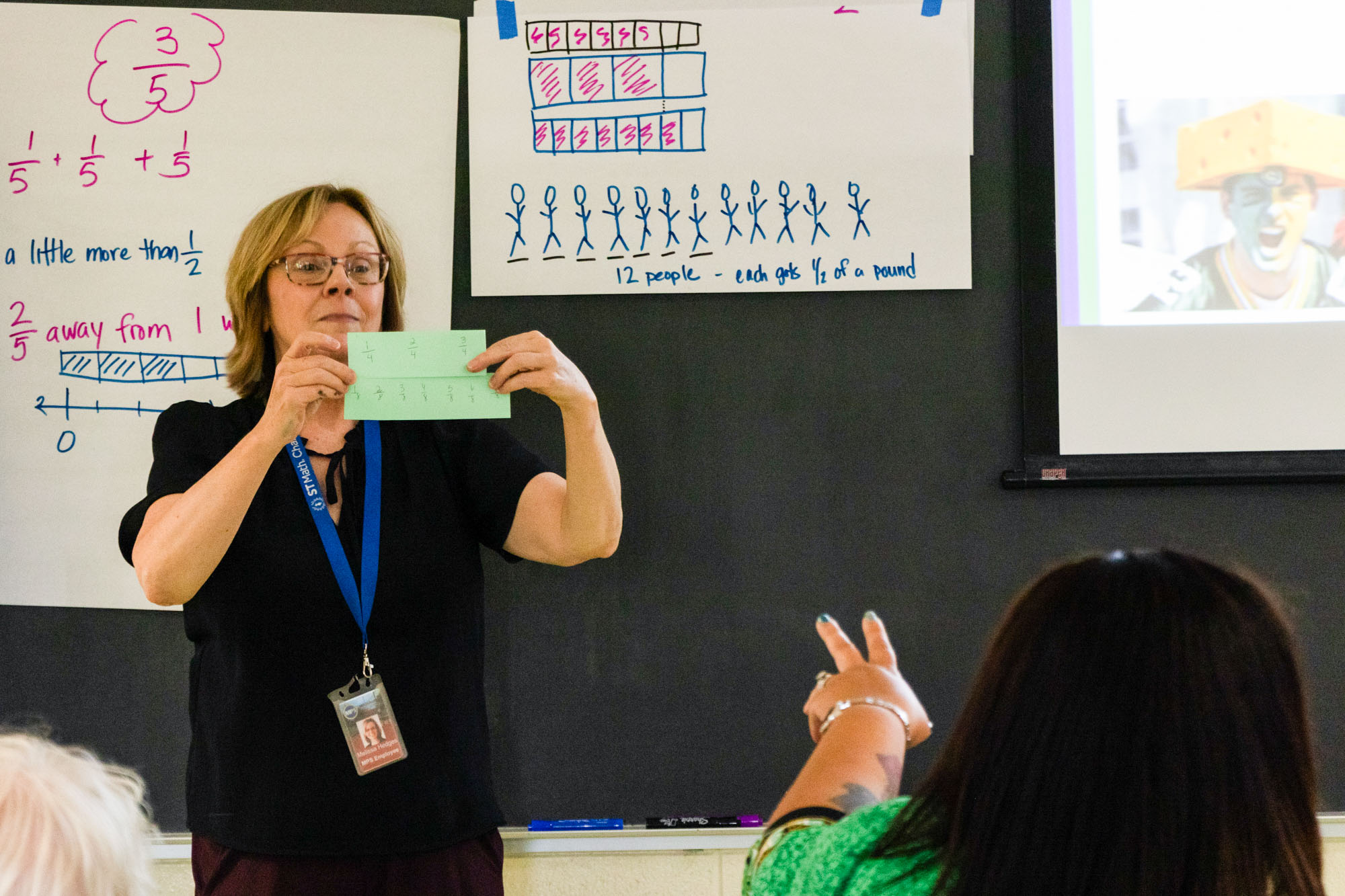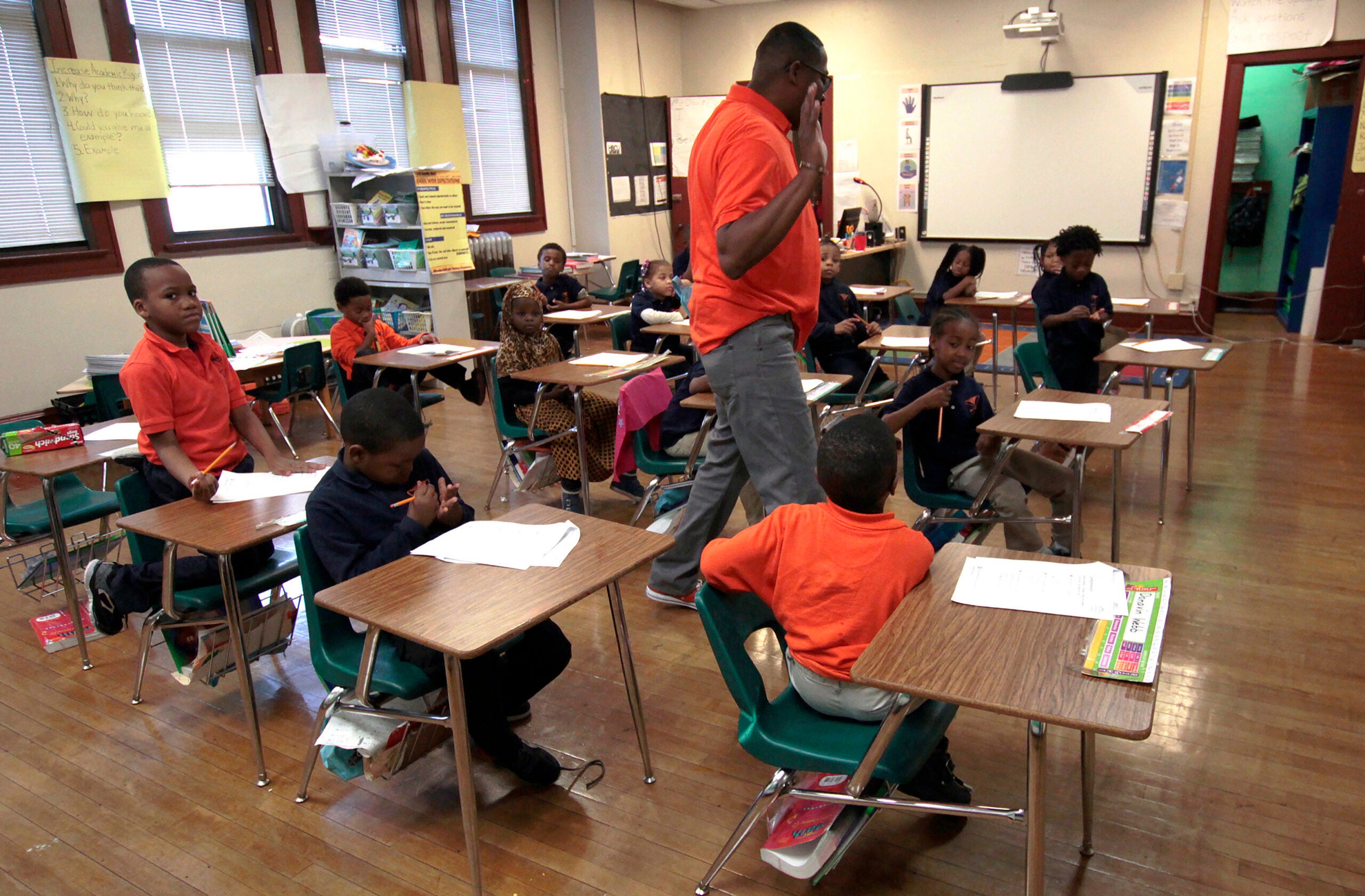Average student achievement in Wisconsin remains months behind in math, and a half-grade behind in reading compared to learning levels in 2019.
That’s according to the latest Education Recovery Score Card at the Center for Education Policy Research at Harvard University.
Now in its third year of reporting, the scorecard for Wisconsin shows the state overall ranks 16th in the nation for math recovery and 30th in reading recovery between 2019 and 2024.
Stay informed on the latest news
Sign up for WPR’s email newsletter.
In Wisconsin, 83 percent of students are in districts whose average math achievement in 2024 remained below their own 2019 levels, according to the research done at Harvard and Stanford universities.
The average student in some districts, such as West Allis-West Milwaukee School District, remains a full grade level or more below their 2019 mean achievement in math.
Reading remains a concern across Wisconsin, with 94 percent of students in districts with average reading achievement below 2019 levels, according to the scorecard.
“Unless state and local leaders step up now, the achievement losses will be the longest lasting — and most inequitable — legacy of the pandemic,” Tom Kane, a professor from Harvard University who led the study, said in a statement.
The Wisconsin Legislature passed a bipartisan law last year to change how the state’s youngest students are taught to read.
The law, known as Act 20, moved students to a phonics-based model known as “the science of reading” beginning this school year, but the results have not yet been realized in many districts.
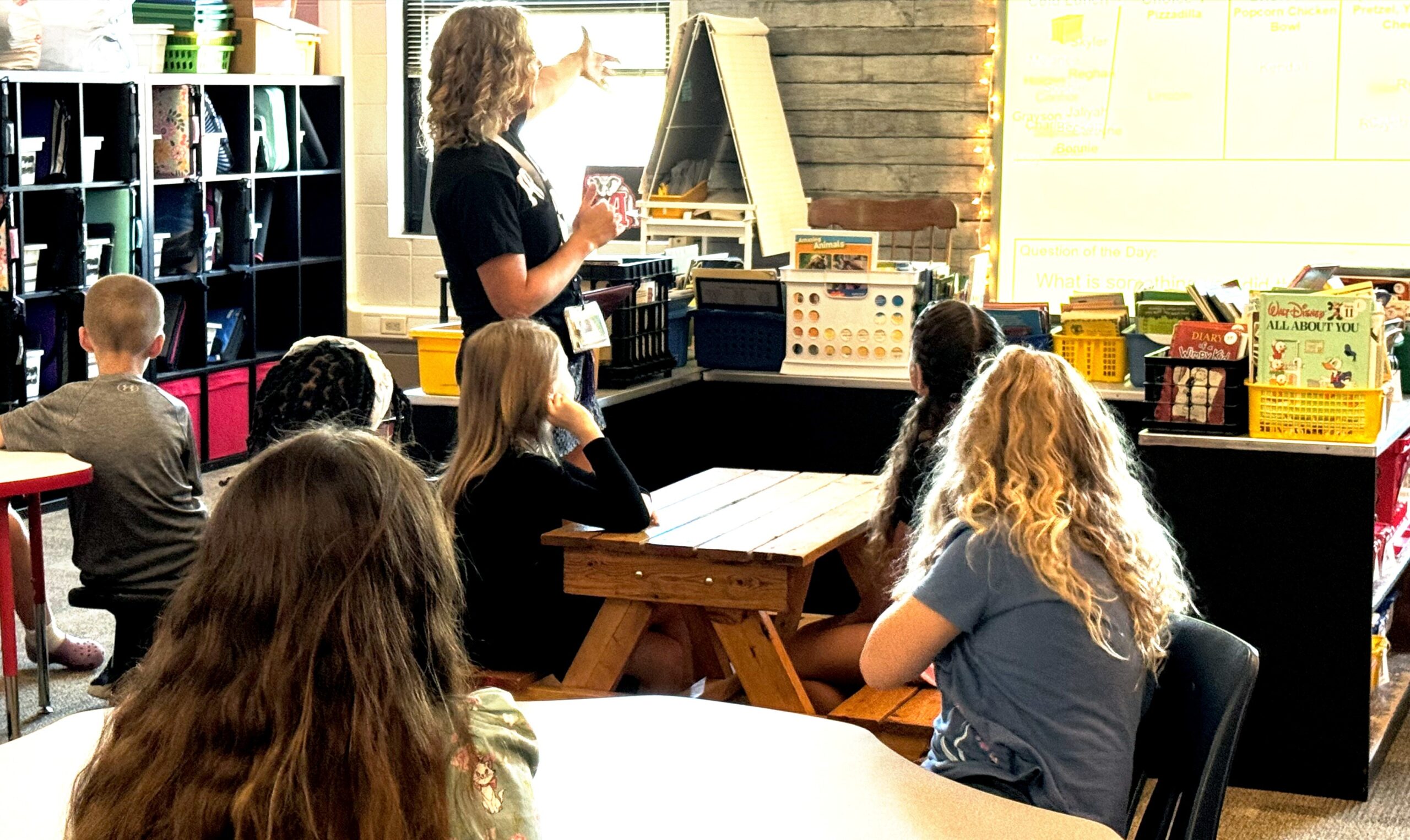
Waukesha, Fond du Lac bright spots for learning recovery
But there are two bright spots in the state: Waukesha and Fond du Lac school districts.
The School District of Waukesha has nearly recovered to 2019 levels in both reading and math. And some districts such as Fond du Lac School District are now scoring above their 2019 means in math.
Since 2021, Fond du Lac has used pandemic relief funds to improve the curriculum and provide professional development opportunities for educators, said Superintendent Jeffrey Fleig.
“The decisions we have made in the past four years — based on principle, purpose, and policy rather than pain, pressure, or politics — have resulted in more growth than any other district in our state,” he said.
From 2022 to 2024, Fond du Lac showed the greatest improvement in math scores out of the 20 largest school districts in the state, surpassing pre-pandemic math levels.
The district also had one of the highest positive changes in math achievement in the entire state of Wisconsin.
Fond du Lac experienced the highest positive change in reading growth in all Wisconsin school districts from 2022 to 2024.
“There have been a lot of conversations in our district recently, and while opinions may differ, one thing is very clear: our students are growing and achieving more than ever before,” Fleig said.
Wisconsin received $2.4 billion in federal pandemic relief for K-12 schools — or roughly $2,800 per student.
While that’s less than the national average of $3,700 per student, the money did contribute to academic recovery in some districts.
In Waukesha, the school district invested more than $6 million on curriculum and training since the pandemic.
Jenn Gennerman, deputy superintendent of teaching of learning, said all elementary, middle and high schools were moved to “common learning” experiences.
For example, if a second grader on the north side of Waukesha is learning to decode words and diagram vowel patterns, a second grader on the south side of the city is learning the same thing, at the same time.
The consistency has improved reading scores across the district, Gennerman said.
“We are ensuring that we are getting research-based sound curriculum resources, and then the next step is professional development,” Gennerman said. “So the value is in getting high quality resources with great educators and instructional practices. It’s just a benefit when we’re all on the common pacing, because then we can help professionally develop our educators.”
Wisconsin Public Radio, © Copyright 2025, Board of Regents of the University of Wisconsin System and Wisconsin Educational Communications Board.
